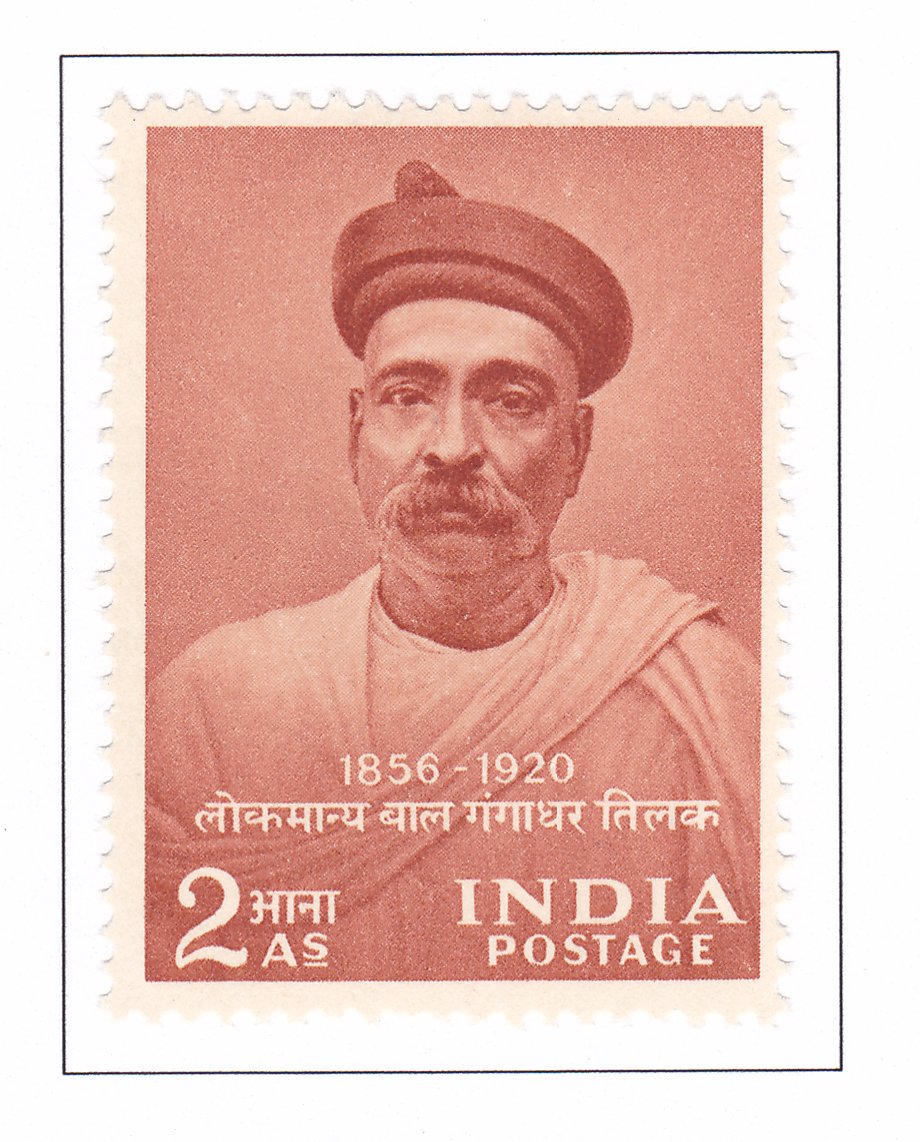Bal Gangadhar Tilak 1856-1920

Technical Data
| Stamp Set | Birth Centenary |
|---|---|
| Date of Issue | July 23, 1956 |
| Denomination | 2 ANNAS |
| Quantity | 22,800,000 |
| Perforation | comb 13 x 13½ |
| Printer | Security Printing Press, Nashik |
| Watermark | Star of India Multiple [Up] |
| Colors | Chestnut |
| Catalog Codes |
Michel IN 258 Stamp Number IN 274 Yvert et Tellier IN 70 Stanley Gibbons IN 374 |
| Themes | Famous people | Freedom Fighters | Journalists | Men | Politicians |
Bal Gangadhar Tilak (1856-1920) was a towering figure in India’s struggle for independence, revered by his followers and feared by his adversaries. Born in the year preceding the Great Revolt of 1857, Tilak emerged as one of the foremost leaders of the freedom movement, relentless in his pursuit of liberty for his nation. After completing his studies in 1879, he eschewed the safety of government employment for a life of public service.
Tilak’s contribution to Indian journalism was significant, as he founded influential newspapers like Kesari and Mahratta, utilizing them as platforms for his bold and incisive writings. His command over the Marathi language made him a formidable voice for the cause of freedom, while his polemical prowess rallied supporters across Western India.
Unyielding in his resistance to British rule, Tilak became a focal point of national defiance, drawing the attention of the colonial authorities who viewed him with suspicion. Despite facing trials and imprisonment, including an eighteen-month sentence in 1897 and six years of transportation to Mandalay in 1908, Tilak remained intellectually active, producing scholarly works even in confinement.
Upon his release, Tilak resumed his activism, collaborating with Dr. Annie Besant to organize the Home Rule Movement. It was during this period that he famously declared, “Swaraj is my birthright and I will have it,” encapsulating the spirit of Indian nationalism.
Tilak’s towering presence in Indian politics earned him the admiration of his compatriots and the respect of his adversaries. His unwavering dedication to the cause of freedom, even to the point of martyrdom, left an indelible mark on the collective consciousness of the nation.
Mahatma Gandhi, in homage to Tilak’s legacy, remarked upon his passing, “My strongest bulwark is gone… A giant among men has fallen… No man preached the gospel of Swaraj with the consistency and the insistence of Lokamanya… In the battle for freedom he gave no quarter and asked for none… He will go down to the generations yet unborn as a maker of modern India.” Tilak’s enduring influence on India’s struggle for independence continues to inspire generations.
